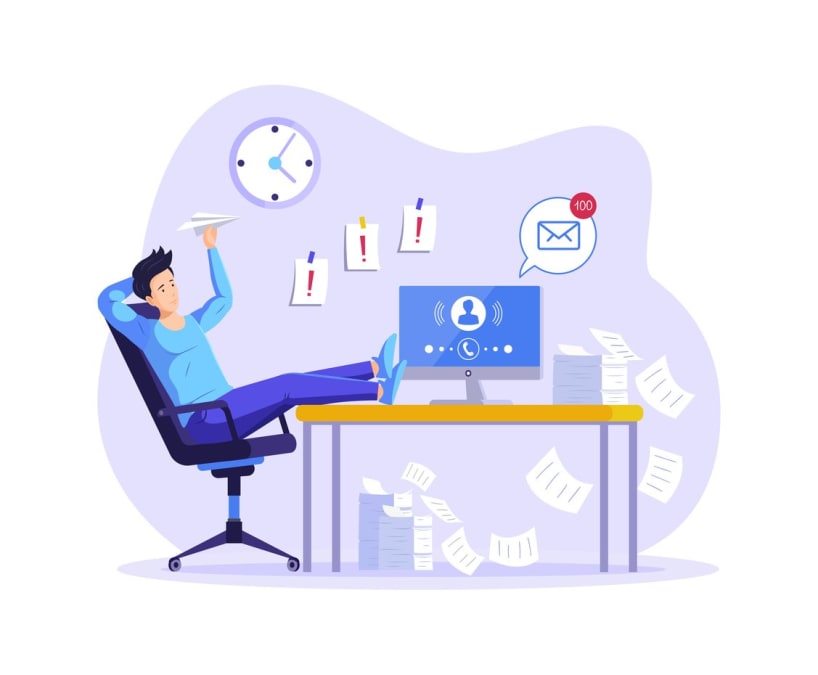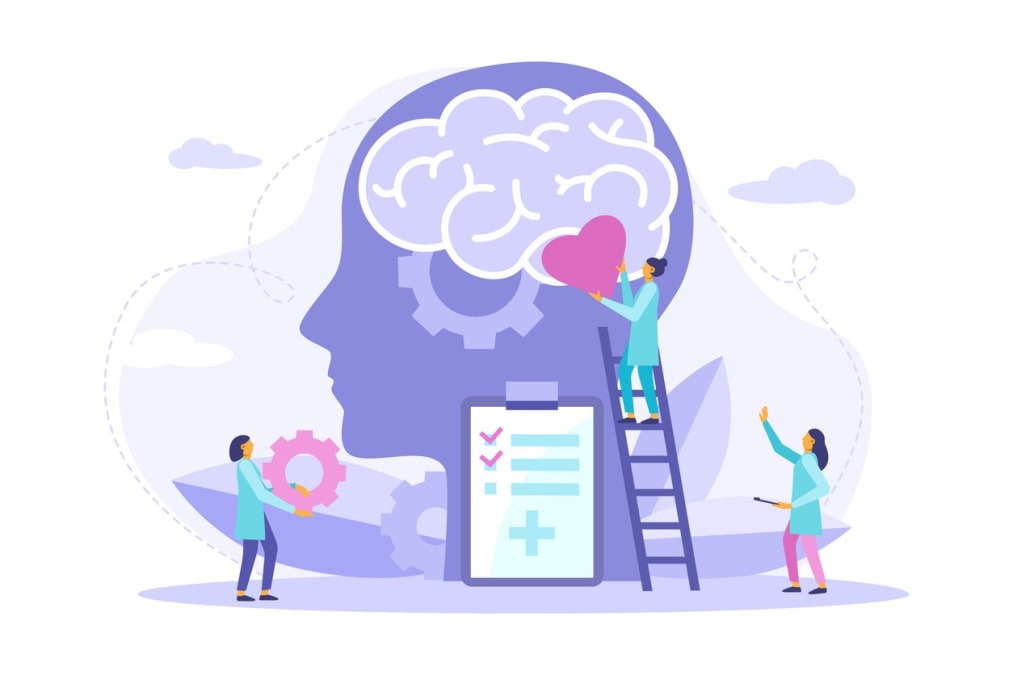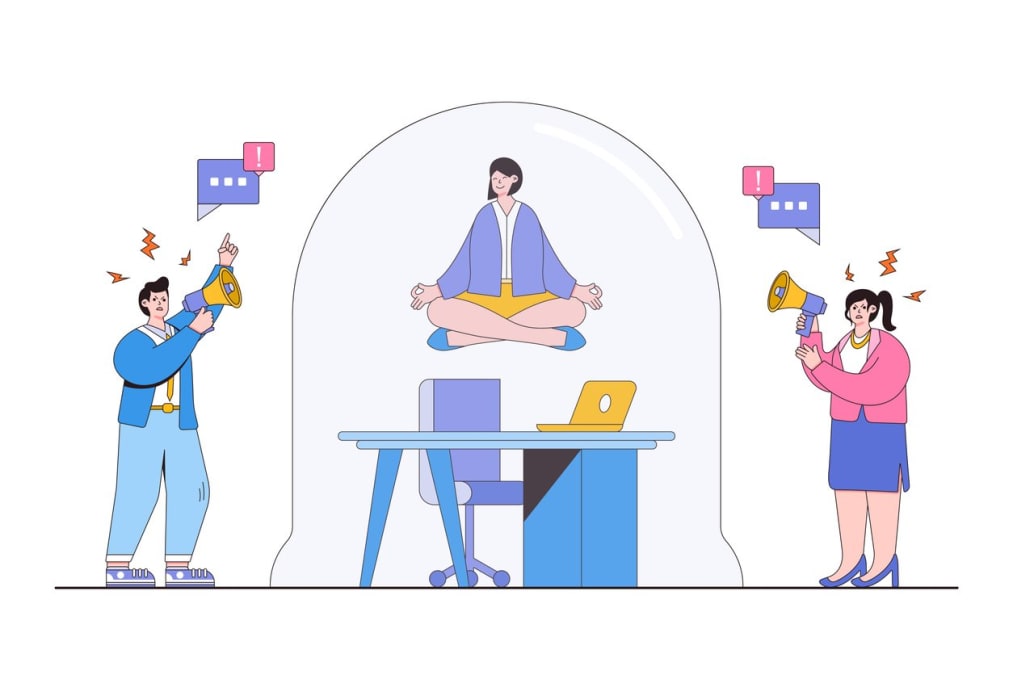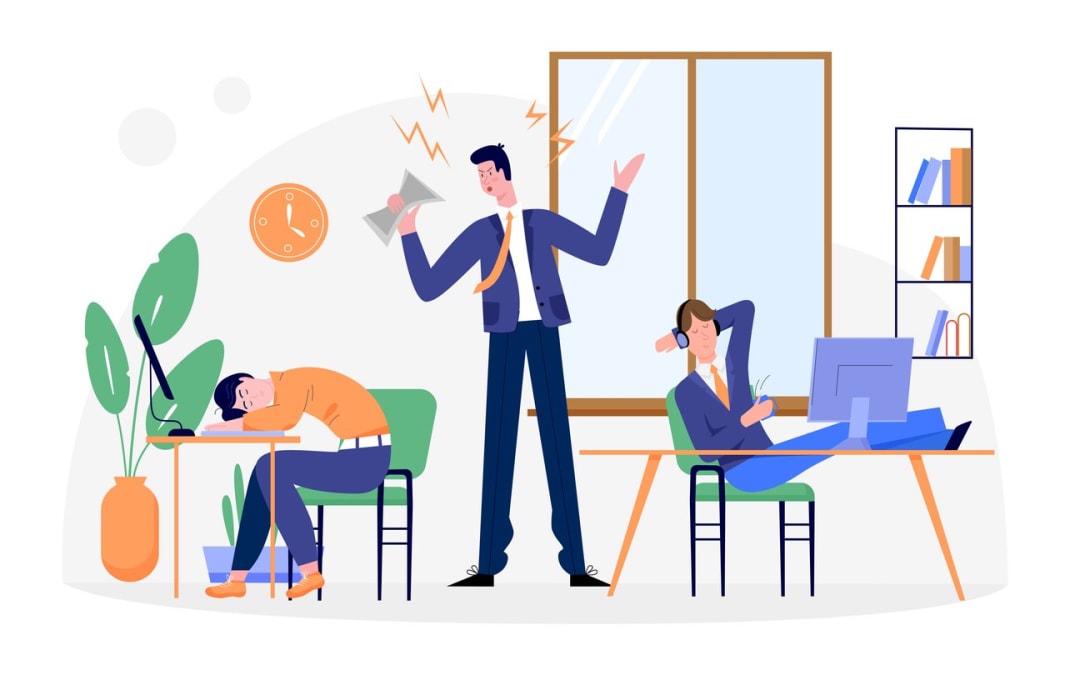Ever wondered why you push tasks to tomorrow? Explore the main causes of procrastination—an interplay of fear, discomfort avoidance, and present bias, among others. In the following sections, we’ll dissect these reasons and provide tangible strategies to help you kick the procrastination habit and enhance your daily productivity.
Key takeaways
- Procrastination is driven by behaviors like the short-term avoidance of discomfort, present bias, and fear, often leading to a cycle of stress and self-sabotage.
- The internal struggle with procrastination is compounded by emotions and negative self-perceptions, while external factors like disruptive environments and the digital world exacerbate the behavior.
- Overcoming procrastination involves both psychological strategies, such as fostering self-compassion and developing a strong connection with the future self, as well as practical techniques like the Pomodoro method and employing targeted productivity tools like Kumospace.
Understanding procrastination: A behavioral perspective

Procrastination is a behavior marked by short-term benefits and long-term costs, a paradox where we knowingly avoid necessary actions despite understanding the harmful repercussions. This isn’t a sign of laziness but rather, an act of self-harm that often benefits from targeted strategies to overcome. People who procrastinate tend to experience these consequences more frequently.
Characteristically, procrastination is an irrational behavior where individuals are aware of the adverse outcomes but continue to postpone tasks. This behavior can be managed with appropriate knowledge, tools, and support, highlighting that overcoming procrastination is possible with the right approach.
The psychology behind delay
Ever wonder why we delay tasks even when we know they’re important? Task aversiveness, or the perception of tasks as unpleasant, is a significant factor in procrastination. When we perceive a task as boring or unpleasant, the likelihood of delaying it increases.
This aversion to discomfort is a common human behavior, and it’s why people procrastinate. By delaying the task, we avoid the negative emotions associated with it, at least temporarily. However, this delay often results in more stress and anxiety in the long run.
Present bias and its effects
Present bias plays a significant role in why we procrastinate. It refers to our propensity to be more motivated by immediate gratification than long-term rewards, which contributes to procrastination. The comfort of the present moment often outweighs the future rewards or consequences.
This disconnect between our present and future self can lead to procrastination. We often view our future self as a stranger, and this perception can influence our decision to delay tasks, leading us to prioritize our immediate comfort over future benefits.
Fear's role in avoidance
Fear, whether of failure, judgment, or the unknown, often motivates people to put off tasks as a way to avoid facing those fears. This avoidance can be a common sign of anxiety related to procrastination.
The struggle with perfectionism often leads to feeling stuck on a project if individuals feel they aren’t doing it as well as possible, fueling procrastination. Understanding that fear plays a role in procrastination can help us develop strategies to address these fears head-on and stop procrastinating.
The internal struggle: emotions and procrastination

While external factors play a role, much of the struggle with procrastination is internal. Procrastination involves an inability to regulate mood and emotions. When we’re overwhelmed by tasks, deadlines, and responsibilities, procrastination can serve as an escape route from the associated stress and anxiety.
When someone has low self esteem, they may:
- Feel less confident in their abilities to complete a task
- Choose short-term relief through avoidance over the potential long-term benefits of completing the task
- Engage in self-sabotage behaviors such as procrastination
- Experience increased stress and pressure
Experiencing negative self-perception can lead to negative consequences, significantly impacting one’s overall well-being.
Emotional overwhelm and task avoidance
When we feel overwhelmed by emotions or the complexity of tasks in achieving our goals, we may resort to procrastination as an attempt to cope with the stress and anxiety they invoke. Procrastination often manifests as prioritizing easier or more pleasurable tasks, avoiding those perceived as too difficult or complex until the last possible moment.
In academic settings, factors like tiredness and the struggle to fall asleep can hinder students’ ability to manage their time and emotions, leading to an increase in procrastination behaviors. Therefore, cultivating good sleeping habits and managing our emotional health can play a crucial role in overcoming procrastination.
Negative self-perception and its impact
Negative self-perception, or adverse beliefs about one’s own competencies and abilities, significantly contribute to procrastination and self regulation failure. When individuals doubt their capabilities, they may avoid starting or completing tasks due to fear of failure or inadequacy.
This cycle of negative self-perception and procrastination can hinder a person’s overall productivity and their ability to manage tasks effectively. Therefore, building self-confidence and a positive self-image can be an effective strategy to overcome procrastination.
The external factors: environmental influences on procrastination

Apart from internal struggles, external factors can also influence our tendency to procrastinate. The academic environment often fosters procrastination due to its inherent high degree of freedom and extended deadlines which make delay appear more viable.
Procrastination can also be exacerbated by distractions such as the allure of more pleasant tasks or the presence of multiple tasks demanding attention, leading individuals to postpone less appealing tasks. Understanding these external influences can help us develop effective strategies to overcome procrastination.
Disruptive environments and focus
In today’s digital world, the prevalence of internet-connected devices like smartphones and laptops can present continuous distractions to people, negatively impacting their work performance and increasing procrastination. Temptations and distractions within the academic environment, including easy internet access and availability of mobile devices, can capture attention and divert behavior towards more pleasurable activities, fostering procrastination.
However, we can combat these distractions by implementing strategies to limit them and improve our focus. For instance, closing unnecessary applications on the computer and placing the phone in another room can help us stay focused on the task at hand.
Organizational challenges
Organizational challenges, such as poor working skills and insufficient training, can make tasks appear more aversive, leading to increased procrastination among students. Professional role ambiguity, as often seen among hospital teachers, contributes to procrastination due to uncertainties about job responsibilities.
Implementing time management skills, such as listing and prioritizing tasks, is critical to limiting procrastination behaviors. Moreover, employing tools for effective communication and collaboration are vital strategies for fostering productivity, particularly in remote work settings.
The mental health connection: procrastination and psychological well-being

Procrastination is not just a productivity issue but can also be a serious mental health concern. A substantial portion of adults worldwide, estimated at 20-25%, are chronic procrastinators, which can correlate with mental health issues such as depression and anxiety.
The relationship between procrastination and mental health conditions is complex, with symptoms of mental illnesses making task initiation harder and procrastination potentially worsening or inducing stress that contributes to mental health issues.
Procrastination's link to mental illness
Procrastination can be symptomatic of underlying mental health issues such as:
- Depression
- Anxiety
- ADHD
- Bipolar disorder
Depression can contribute to a weakened drive to act, which often results in procrastination. Low energy levels, a common symptom of depression, can lead to increased procrastination.
ADHD is another mental health issue that can lead to difficulties in maintaining focus and drive, resulting in procrastinatory behavior. Understanding the link between procrastination and mental health can help in developing strategies to manage both effectively.
Stress levels and procrastination
Stress can significantly influence our propensity to procrastinate. When stressed, the limbic system in the brain can override the prefrontal cortex, which affects planning and goal setting, thereby increasing the likelihood of procrastination. The avoidance of negative emotions related to tasks due to increased stress may enhance the tendency to procrastinate.
Engaging in frequent procrastination can trap individuals in an unproductive cycle of stress and further avoidance of tasks. Therefore, managing stress effectively is crucial in overcoming procrastination, enhancing productivity, and achieving less stress.
Breaking the cycle: strategies to overcome procrastination

Now that we understand the causes and effects of procrastination, let’s explore some strategies to overcome it. Techniques such as the Pomodoro Technique, incorporating mindfulness practices, and the ‘gummy bear approach’ have proven effective at managing stress and combating procrastination.
Adopting various exercises and actions as strategies, such as setting micro goals and creating prioritized task lists, helps in the fight against procrastination and encourages timely task completion.
Harnessing technology for focus with Kumospace
Technology can be a double-edged sword. While it can be a source of distraction, when used effectively, it can also aid in overcoming procrastination. Virtual workspaces like Kumospace can improve team productivity by allowing them to perform effectively regardless of geographical location.
Kumospace encourages focus and collaboration through its platform design and features. With its built in virtual workspaces that make for work-enhancing hubspots of communication, Kumospace creates an ideal environment for focus and productivity. Users have found that Kumospace enables them to engage more deeply with their tasks and effectively reduces their procrastination tendencies.
Building a bridge to your future self
Temporal discounting reduces people’s perceived value of outcomes, diminishing their motivation to act now for future benefits. Visualizing future successes helps build a tangible connection with the future self, thereby decreasing the inclination to procrastinate.
Considering the positive results of task completion can bridge the gap between present actions and long-term goals, reducing the habit of procrastination. Scheduling rewarding activities after completing essential tasks reinforces productivity by linking present efforts to future enjoyment and fostering positive emotions.
Developing self-compassion and control
Cultivating self-compassion involves treating oneself with kindness during difficult times and understanding that suffering and imperfection are part of the shared human experience. To increase self-compassion and counteract procrastination, it is beneficial to forgive oneself for past procrastination and to replace self-critical thoughts with compassionate ones.
Improving self-control to manage procrastination may involve:
- Identifying and challenging excuses
- Making and committing to choices that are congruent with one’s goals and responsibilities
- Learning to replace negative thought patterns with positive affirmations
- Engaging in stress-management techniques
These strategies can support ongoing productivity.
Summary
In our exploration of procrastination, we have delved into its psychological and behavioral aspects, the role of emotions, external and internal factors, and its link to mental health issues. We’ve also explored practical strategies to overcome procrastination, from harnessing technology to cultivating self-compassion and control.
Overcoming procrastination is not just about being more productive; it’s about improving our mental health, our self-perception, and our overall well-being. Remember, the journey to productivity is a marathon, not a sprint. So, take it one step at a time, and soon, you’ll find yourself not just dreaming of success, but living it!
Frequently asked questions
Procrastination can be caused by depression, anxiety, low self-esteem, ADHD, and poor study habits. It is also linked to negative functioning, mental health risks, high anxiety levels, poor impulse control, and physical illness.
To overcome procrastinating, try reducing the number of decisions you need to make throughout the day, finish your day before it starts, and focus on doable tasks with the next action habit. Small changes in your environment can also help. Start implementing these strategies to overcome procrastination.
Procrastination can stem from factors like low self-confidence, anxiety, and a lack of motivation, as well as a tendency to ruminate on negative thoughts (Psychology Today).
Procrastination is often driven by task aversiveness, present bias, and fear, which lead individuals to delay tasks despite knowing the potential negative consequences. These psychological factors play a significant role in procrastination.
Emotions, such as feeling overwhelmed or negative self-perception, can trigger procrastination as a coping mechanism for stress and anxiety. This is because they contribute to a sense of being unable to handle tasks effectively.





